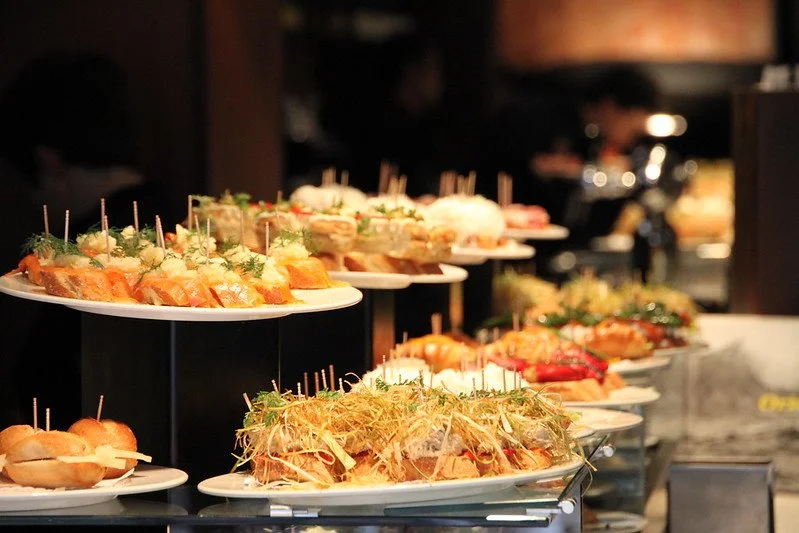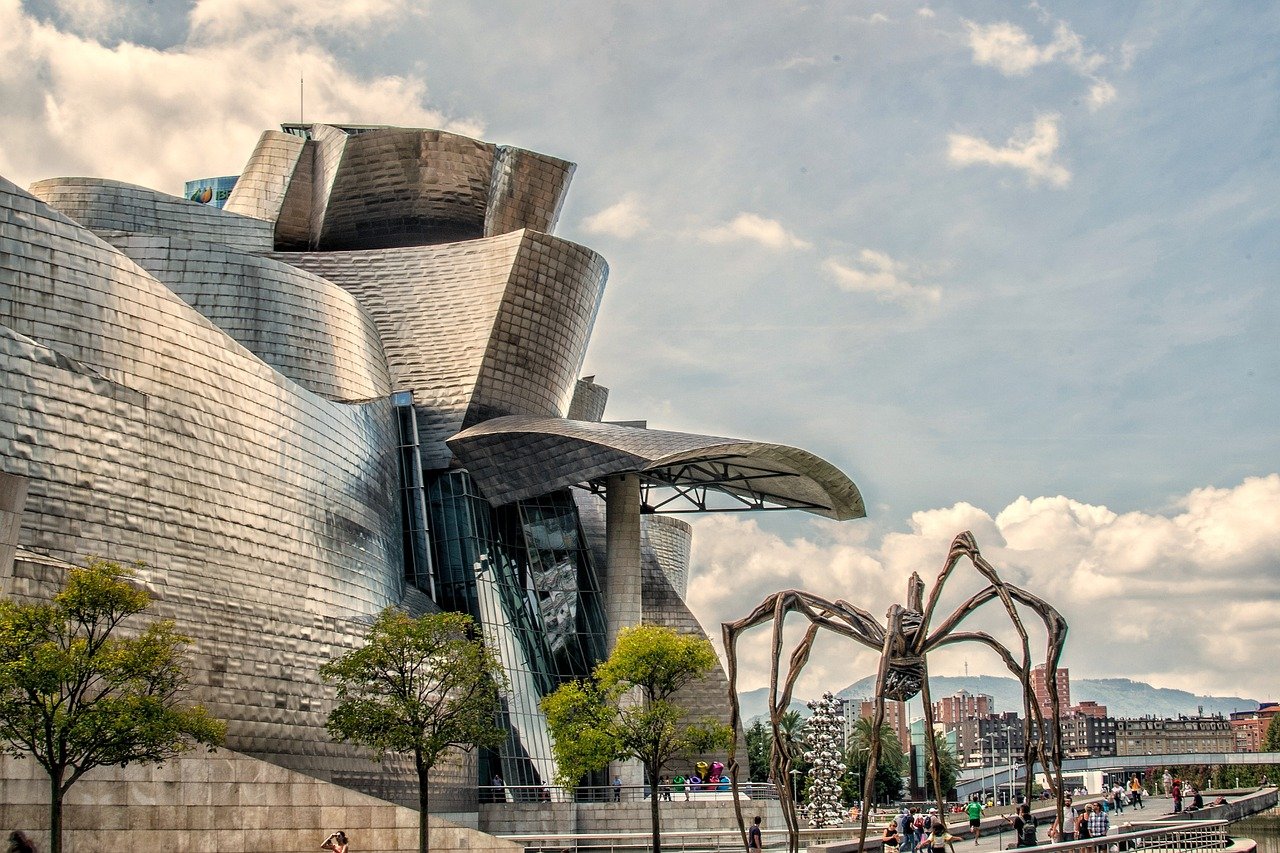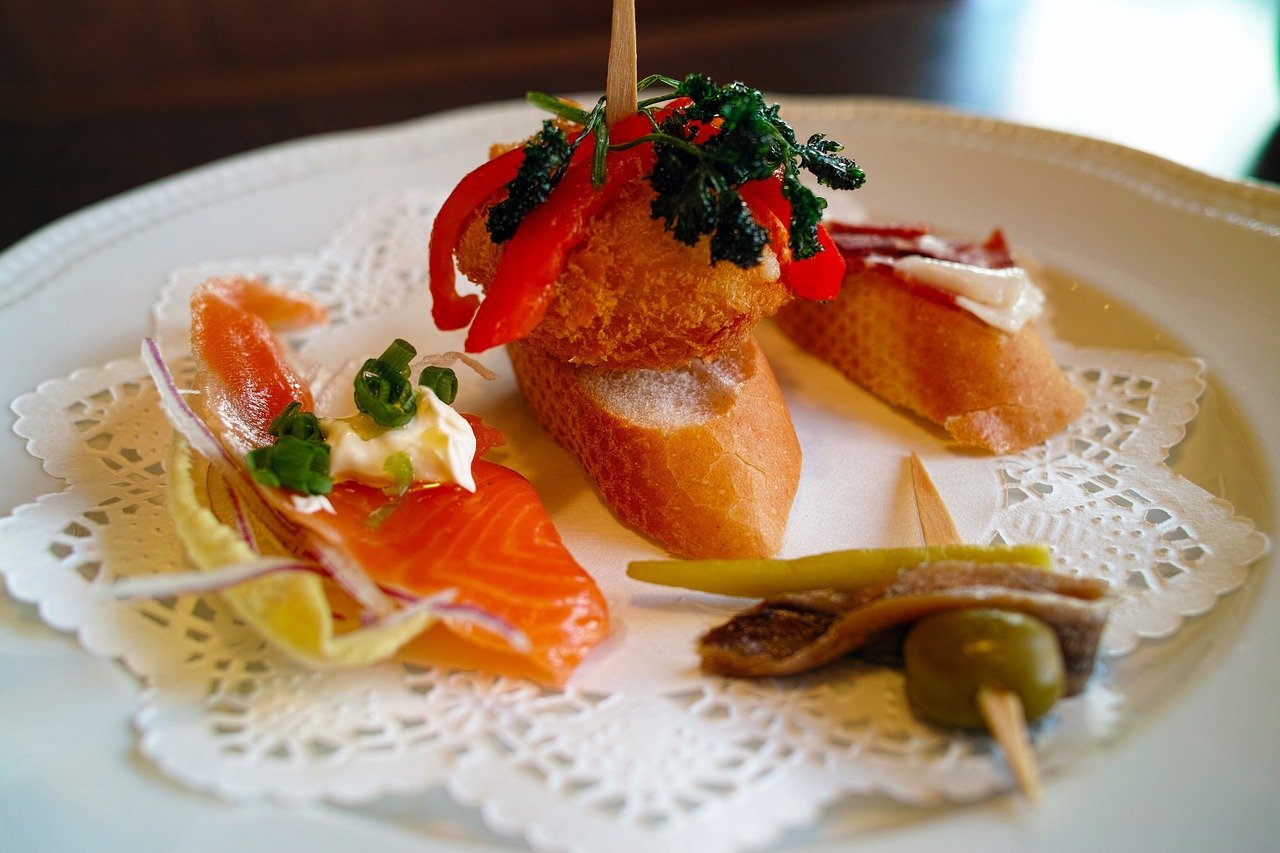Bas(qu)ing in difference: the Beauty of the Basque identity II: Pin(tx)ch me, a life changing food experience
Picky Pintxos in Bilbao (Photo: Rasmus Lerdorf, CC BY 2.0 DEED, via Flickr)
After finishing my A levels, my mum and I took a trip to Bilbao–an incredible city in Northern Spain, perhaps one of the most famous cities in the Basque country. Its industrial, almost postmodern feel combined with classic European winding streets and old architecture, all located below a verdant array of hills and mountains, transforms it into something to be marvelled at. With its very own Guggenheim museum, the city seems to me the cultural capital of the Basque country. However, whilst my mum and I were left astonished by this incredible city’s architecture and picturesque landscapes, perhaps what captured us the most were incredible, edible, small delights: ‘pintxos.’
If you read my previous column about Euskera, the mystifying Basque language, you will know that, in Basque, the ‘tx’ combination often sounds like ‘ch’, so the word pintxos should be pronounced pinchos. Etymologically, the word comes from the Spanish, pinchar, meaning to puncture or stab, a clue at what these incredible, little delicacies look like. But, what exactly are pintxos, you may ask.
The pintxo is an extremely petite yet incredible and filling delicacy, perhaps a brother to the Spanish tapas. Each pintxo is served on a piece of bread, usually a baguette, cut into a circle, topped with a different food originating from the Basque country. Pintxos are essentially tapas, but are arguably better because you get an extra piece of bread with them. The pintxo is perhaps, in an extremely bizarre way, reflective of the impressive architecture scattered throughout Bilbao, the whole structure of the Pintxo being held together by one small cocktail stick, a gastronomic and architectural gem in itself.
Exhibit A: The Guggenheim vs the architectural brilliance of a Pintxos selection (Images via Pixabay).
When my mum and I arrived in Bilbao, we were instantly struck by a wave of the most intense heat I have ever felt. Having just got off a plane, sweaty and tired from the long queues of excited summer holidaymakers in Gatwick, the first thing we needed was food. We wandered around the city, gawking at the idyllic sites, amazed by the melange of green rolling fields and the sheer architectural modernity. Approaching a square full of small restaurants, we had hit the jackpot. We took refuge from the beating sun in a diminutive bar, it would have fit a mere two or three parties. The bar was adorned with nothing but hundreds and hundreds of tiny pieces of bread with cocktail sticks and interesting toppings: our first run-in with the stunning pintxo.
Keen to impress my mum in my highly mediocre A level Spanish, I asked the bartender how many people usually order. He explained that people usually get one or two and move on to the adjoining restaurants to try a myriad of different flavours and culinary specialities. eing insufferably British and consequently afraid of the sweltering heat, we decided to stay in that restaurant and chose e five each, costing a mere two or three euros–I can’t remember the exact price. In that very moment, everything changed.
I believe only some people are lucky enough to experience life-changing food moments, and I would argue that I am one of the fortunate few. The very instant I tried this beautiful yet incredibly simplistic delicacy, I realised nothing would ever top the pintxo.
We tried a plethora of delightful edibles, discovering new flavours with each pintxo tried. I remember having one topped with the classic Spanish tortilla, something I have, embarrassingly, never been a fan of. Yet, in pintxo form, it altered my taste buds, a salty and creamy melange of cheese and potatoes on top of an unbelievably soft Basque baguette. There were others topped with all sorts of seafood, one with a crispy prawn, another with anchovies, sweet red pepper and a potently spicy chorizo cream. Others took inspiration from the Spanish tapas, one having a whole cheesy and smooth croqueta with a golden and crispy outside, on top of the baguette.
From that moment on, each mealtime in Bilbao required only one thing: a plate of Pintxos.
In Britain, the ‘pub crawl’ is a very normal weekend activity. This concept of hopping from pub to pub, or rather bar to bar, is, in fact, also commonplace Basque country, yet it differs in one small way. Many will go on what we might deem a ‘pintxo crawl’, hopping from bar to bar trying a different pintxo at each place, normally washed down with an alcoholic beverage. I’m sure you will agree that a ‘pintxo crawl’ sounds much more enjoyable and probably does not require you to take out a mortgage, like a pub crawl in London might do.
So, if you ever find yourself in the Basque country, hungry and at a loss, wondering what to do, I have one piece of advice, which you would be a fool not to take: find a strip of Basque bars and buy yourself as many pintxos as you want from each one.
Trust me, you can’t go wrong.


